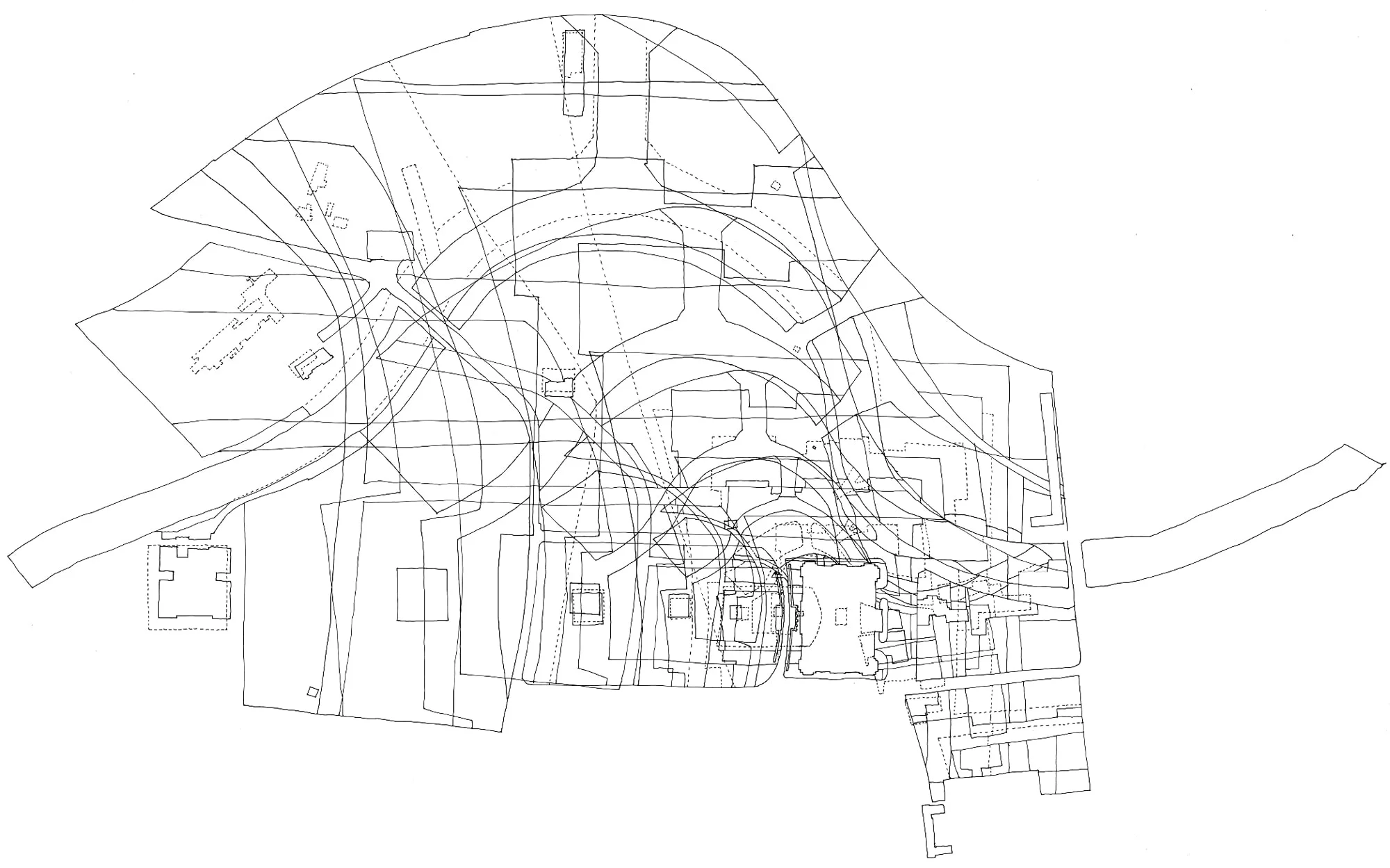Spreebogen
berlin germany
Competition Proposal
Competition Date:
2000 (Unbuilt)
The design of the new German parliament represents an expression of the German democratic process as well as being the first parliament of the post cold war era. Conceptually this historical position can allow one to question the nature of a democratic institution, the nature of traditional urbanism, and how can this be architecturally expressed. With the language of today’s democratic message becoming less transparent and the meaning more veiled, language became our starting point for this post cold war parliament. This beginning was conceptually reinforced by a (mis) reading of James Joyce’s Ulysses as language’s model of dislocation. The compression of the epic journey into a twenty-four hour cycle and the presentation of the dichotomous nature of the protagonist, a transparent and yet unintelligible stream of consciousness, was Joyce’s manipulation of the idea of the event.
An analysis of the development of German cities, and this site in particular, seem to trace changes in western urbanism. In studying the historical development of the site, we counted six interventions/dislocations of the area, namely the Prussian Military Drill and Parade Square, the Forum of Imperial Germany, the Forum for the Weimar Republic, the Nationalist Socialist Planning Schemes, the City of the Future, and finally the Platz der Republik Competition. The site planning strategy that was developed allowed for the existing site to be superpositioned at various scales creating a simultaneous trace/composite reading analogous to the above six interventions. These dislocations are called “slips” and “Six Spree Slips” refers to this historical compression. Overlaid with the given conditions of the program, this strategy allows for a refocusing of what already exists in the Spreebogen site, a way of projecting a new urban organization into the existing fabric.
With end of the cold war era and the dawn of a new and yet undefined era, this project is an attempt to question the idea of a static urbanism of object/axis. In the future, the democratic process will become even more of an event spectacle, simultaneously transparent and opaque. This is an attempt to reframe past and present conditions, an expression of event urbanism for the new German Republic.


